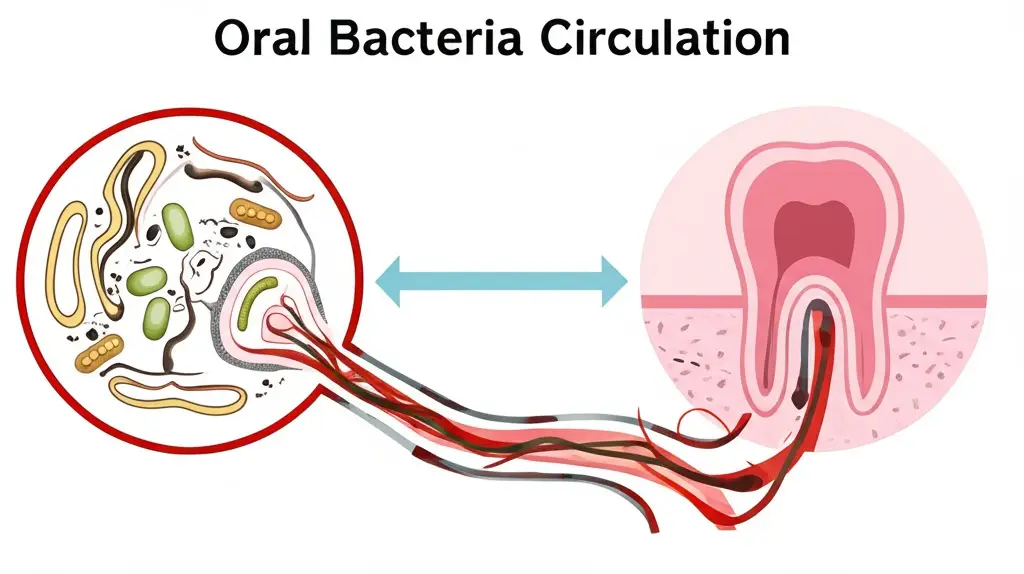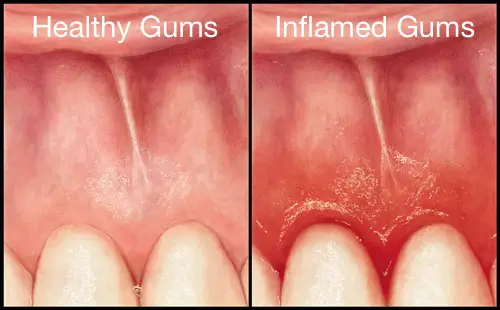Your Gums Affect Your Heart: Groundbreaking Study
By Amanda Davidson on 8/22/2025

When you visit Lok Dentistry on Bay St., you’re probably thinking about cavities, whitening, or maybe that crown you’ve been putting off. But what if your dental appointment could actually be protecting your heart? A groundbreaking new study from University College London has revealed something remarkable: treating gum disease doesn’t just save your teeth, it may actually slow down the aging of your arteries.
The Hidden Connection Between Your Mouth and Your Cardiovascular System
Periodontitis, affects over 40% of adults worldwide. It’s that chronic inflammation that makes your gums bleed when you brush, creates pockets around your teeth, and if left untreated, can lead to tooth loss. But here’s what many people don’t realize: the bacteria and inflammation in your mouth don’t stay there. They travel through your bloodstream, potentially affecting your entire cardiovascular system.

The research team at UCL Eastman Dental Institute studied 135 otherwise healthy participants with severe gum disease. Half received intensive periodontal treatment (IPT), which included deep cleaning below the gum line, root planing to smooth tooth surfaces, and when necessary, surgical correction of deep pockets. The other half received standard cleanings above the gum line only.
What the Researchers Discovered
The results were striking. After two years, those who received intensive gum treatment showed measurable improvements in their arterial health. Specifically, the thickness of their carotid artery walls (the major blood vessels in your neck that supply blood to your brain) decreased by 0.023 millimeters compared to the control group. While this might sound tiny, in cardiovascular terms, it’s significant: previous research shows that reducing this thickness by just 0.01 mm per year corresponds to a 10% reduction in future cardiovascular events.

The benefits started almost immediately. Within just two months of treatment, patients showed improved endothelial function, which is how well the inner lining of blood vessels responds to changes in blood flow. This improvement persisted throughout the entire two-year study period. Healthy endothelium is like having smooth, flexible pipes that can adapt to your body’s needs. Damaged endothelium is like having stiff, rough pipes that can’t respond properly, setting the stage for atherosclerosis and heart disease.
The Inflammation Factor
The study also tracked inflammatory markers in participants’ blood. Those who received intensive treatment showed reduced levels of high-sensitivity C-reactive protein (hsCRP) and glycoprotein acetyls (GlycA), both indicators of systemic inflammation. The GlycA levels dropped particularly quickly, mirroring the improvements in blood vessel function.
This matters because chronic, low-grade inflammation is increasingly recognized as a driver of cardiovascular disease. When you have untreated gum disease, your immune system is constantly activated, releasing inflammatory molecules that can damage blood vessels throughout your body. It’s like having a small fire that never quite goes out, continuously producing smoke that damages everything around it.
What This Means for Your Health
Traditional cardiovascular risk factors like cholesterol, blood pressure, and blood sugar didn’t change significantly between the two groups in this study. Yet the intensive treatment group still showed clear vascular benefits. This suggests that treating gum disease offers a unique pathway to cardiovascular protection that works independently of these conventional risk factors.
For Torontonians navigating busy professional lives, this research offers a compelling reason to prioritize dental health. You might be eating well, exercising regularly, and managing your stress, but if you’re ignoring that occasional bleeding when you floss, you could be missing a crucial piece of your cardiovascular health puzzle.
Beyond Basic Cleanings: The Importance of Comprehensive Care
The key distinction in this study was the depth and thoroughness of treatment. The intensive protocol addressed the infection below the gum line and eliminated the deep pockets where bacteria thrive. This is why choosing a dental practice that offers comprehensive periodontal assessment and treatment options matters.
At our downtown Toronto dental office, we understand that your teeth and oral health is intimately connected to your overall wellbeing. So we take the time to properly assess gum health at every visit, using advanced diagnostic tools to catch problems early, and offering treatment options that go beyond surface-level cleaning when needed.
Taking Action for Your Health
If you’re experiencing any signs of gum disease (bleeding gums, persistent bad breath, loose teeth, or receding gums), this research underscores why prompt treatment matters. But even if you’re not experiencing obvious symptoms, regular professional assessment is crucial, as gum disease often progresses silently in its early stages.
The London study’s participants were otherwise healthy individuals without diagnosed cardiovascular disease or other inflammatory conditions. This means the benefits observed could apply to many people who consider themselves generally healthy but have untreated gum disease.
A New Perspective on Preventive Health
This research reinforces what forward-thinking dental professionals have long suspected: the mouth truly is a window to overall health. By investing in comprehensive dental care, you’re not just protecting your smile; you’re potentially adding years to your life and life to your years.

Your next dental visit is an opportunity to take control of a modifiable risk factor for cardiovascular disease. Located on 1006 Bay St. Toronto, where stress and busy schedules often take priority, remember that those dental visits might be some of the most important health appointments you keep. The study is located below.
Reference
Orlandi, M., Masi, S., Lucenteforte, E., Bhowruth, D., Malanima, M. A., Darbar, U., Patel, K., Lim, C., Curra, C., Shiehfung, T., Georgiopoulos, G., Roberts, J. D., Stafford, S. J., Park, C., Hingorani, A. D., Taddei, S., Deanfield, J., & D’Aiuto, F. (2025). Periodontitis treatment and progression of carotid intima-media thickness: a randomized trial. European Heart Journal, ehaf555. doi: 10.1093/eurheartj/ehaf555. Retrieved from European Heart Journal